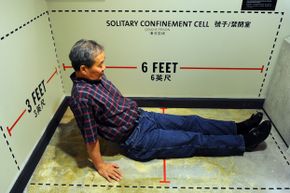We've all been at our wit's end more than once. Perhaps it's because the baby is crying incessantly, or we're fighting with our spouse over unpaid bills. In short, we lose our mind. We're stressed. We're angry. We're sad and desperate. Take a deep breath. No one's perfect.
Of course, no one actually "loses" their minds. Instead, we experience emotional distress, a concept that eludes neat definition and is part of being human [sources: Bouchez, Phillips].
Advertisement
Most emotional distress is a passing occurrence that often can be traced to specific stressors. When those things disappear, so does our distress. It doesn't always work like that though. If we still feel like we're losing our minds, we might have a more severe mental disorder, such as anxiety or depression [sources: Bouchez, Phillips].
Hallmarks of emotional distress include sleeping less or more than usual for no apparent physical reason. Our weight can fluctuate, or our eating patterns change. Not being able to control our anger is another telltale sign that we're experiencing emotional distress [source: Bouchez].
So what makes someone "lose it"? Let us surprise you with these 10.










